Theogony

The Theogony (ancient Greek Θεογονία Theogonía "emergence of the gods", from θεός theós "god" and γίγνεσθαι gígnesthai "to become, to arise") is a work by Hesiod, in which the emergence of the world and the gods in the sequence of their rule is described. It was written around 700 B.C. and is thus, along with Homer's Iliad and Odyssey, one of the oldest sources on Greek mythology.
Contents
Hesiod's Theogony is introduced with his consecration as a poet by the Muses. The Muses present Hesiod with "a shoot of fresh green laurel" as a scepter and breathe divine song into him, thus consecrating him as the singer of the Theogony.
After this proem, Hesiod's poetic account of the creation of the world and the descent of the gods begins: The cosmos begins with the appearance of six primordial deities. These are Chaos, Gaia, Tartaros, Eros, Erebos and Nyx. Whether these six arise independently of each other or whether the other five arise from Chaos is unclear. However, the latter is usually assumed.
Next Gaia gives birth through Eros - without mating in sleep - to Uranos, the sky, Ourea, the mountains, and Pontos, the sea. Nyx and Erebos beget Aither, the air, and Hemera, the day. From Gaia and Uranos descend the Titans, the Cyclopes, and the Hekatoncheirs.
Uranos hides his children in the earth and does not let Gaia bear them. This enrages Gaia and she incites Kronos, one of the Titans, to overthrow her. Kronos, on her advice, emasculates his father with a sickle and throws the limb into the sea.
By emasculating his father, he becomes the ruler of the second generation of gods. From the blood that falls from Uranos' limb onto Gaia, the giants, the Erinyes and the Melian nymphs are born. From the seed of the limb hurled into the Pontos, Aphrodite grows forth.
This first longer narrative is followed by other genealogies. The descendants of Nyx are enumerated, those of Pontos and the descendants of the Titans Okeanos and Tethys, the Okeanids and the Rivers.
These are followed by the descendants of the Titans Theia and Hyperion, the Titan Kreios with the daughter of Pontos Eurybia, and the Titans Phoibe and Koios. Finally, the descendants of Kronos and Rhea are named: Hestia, Demeter, Hera, Hades, Poseidon and Zeus.
After Kronos is predicted by Uranos and Gaia to be disempowered by one of his sons, he devours his children. Rhea, however, manages to hide Zeus and have Kronos devour a coiled stone instead.
Through a ruse, Kronos vomits up the stone and the remaining children, whereupon Gaia shows them the hiding place of the Cyclopes. Zeus frees them and receives the thunder, the ignition wedge and the lightning from the forging Cyclopes.
After the description of the birth of Zeus follows the genealogy of the Titan Iapetos with the Okeanide Klymene. These are all punished by Zeus for their misdeeds, including Prometheus, who, tied to a pillar, has his liver eaten off by an eagle until Heracles later frees him.
The punishment of Prometheus is the only one explained: Prometheus distributed a slaughtered ox, trying to deceive Zeus. The meat he put on a pile and covered it with skin and stomach, on another pile he put the bones and covered them with fat.
Zeus recognized the deception and still chose the pile with the bones, since then people sacrifice the bones to the gods and eat the meat themselves. Zeus then hides the fire from the people, but Prometheus steals it and brings it back to them. Zeus has Hephaestus fashion Pandora out of clay and sends her to the humans to bring them bad luck.
After the Prometheus narrative, the rest of the Titanomachy is described. Zeus and his siblings wage war against the Titans for ten years, until Gaia reveals the hiding place of the Hekatoncheirs.
They are freed and together they defeat the Titans and banish them to Tartarus, where they are guarded by the Hekatoncheirs. This is followed by a longer description of Tartarus and its inhabitants.
A final confrontation follows: after the banishment of the Titans, Gaia gives birth to Typhoeus in order to disempower the gods. He almost achieves victory, but is then fought by a thunderbolt of Zeus and banished to Tartarus, where he gives rise to the harmful winds. After this final battle, Zeus is appointed ruler by the other gods.
A catalog of Zeus' marriages follows, first that with Metis. Gaia prophesies to Zeus that a son of Metis will overthrow him, as he overthrew Kronos and the latter overthrew Uranos, whereupon he devours his wife.
Zeus then gives birth to Athena from his head. After the marriages with further goddesses follow the connections of Zeus with mortal women as well as marriages of the other Olympians. Finally, with its own prologue, follows a catalog of the goddesses who have offspring with mortal men.
Reception
Although Hesiod's gods are portrayed as predominantly good and philanthropic, they also exhibit characteristics and commit acts that were generally considered reprehensible in Greek society.
Xenophanes already reproached Homer and Hesiod for their anthropomorphism: Everything Homer and Hesiod attached to the gods that is shameful in humans: stealing, adultery, and cheating on each other!
